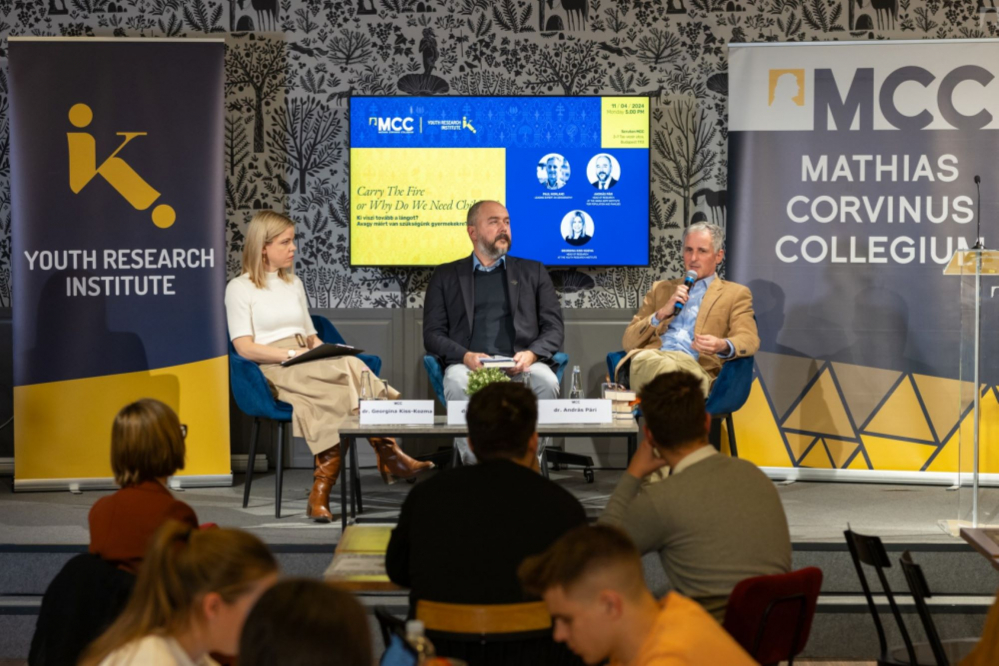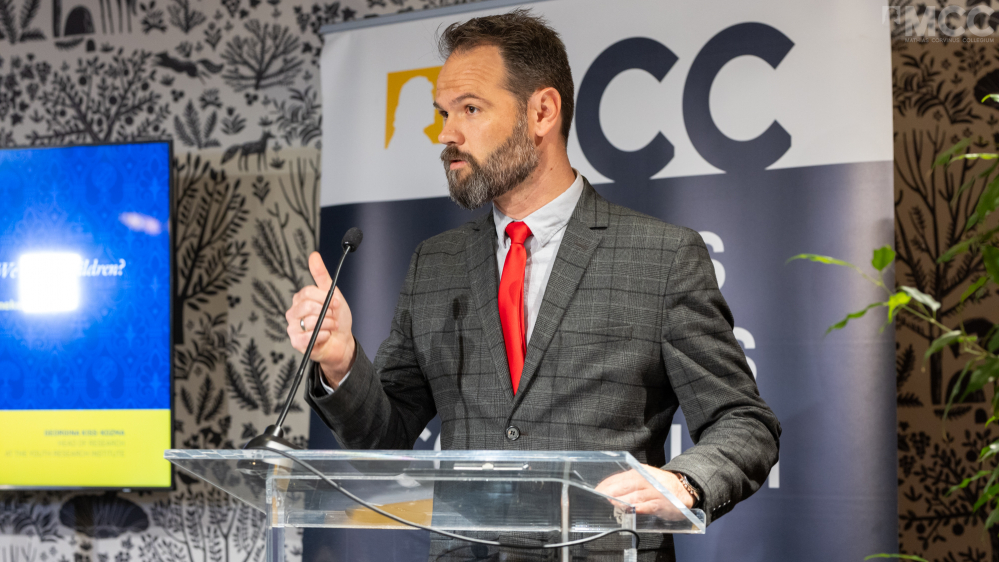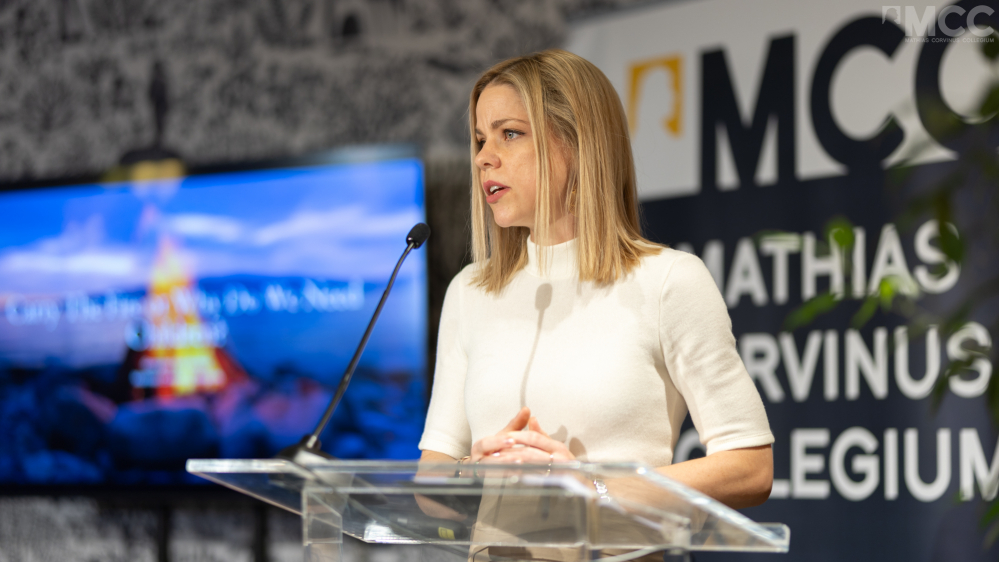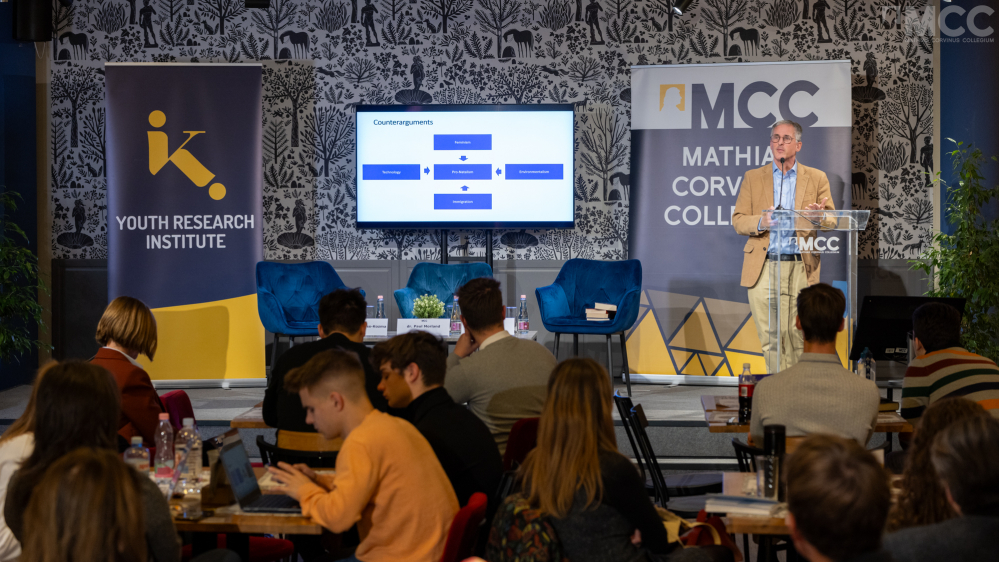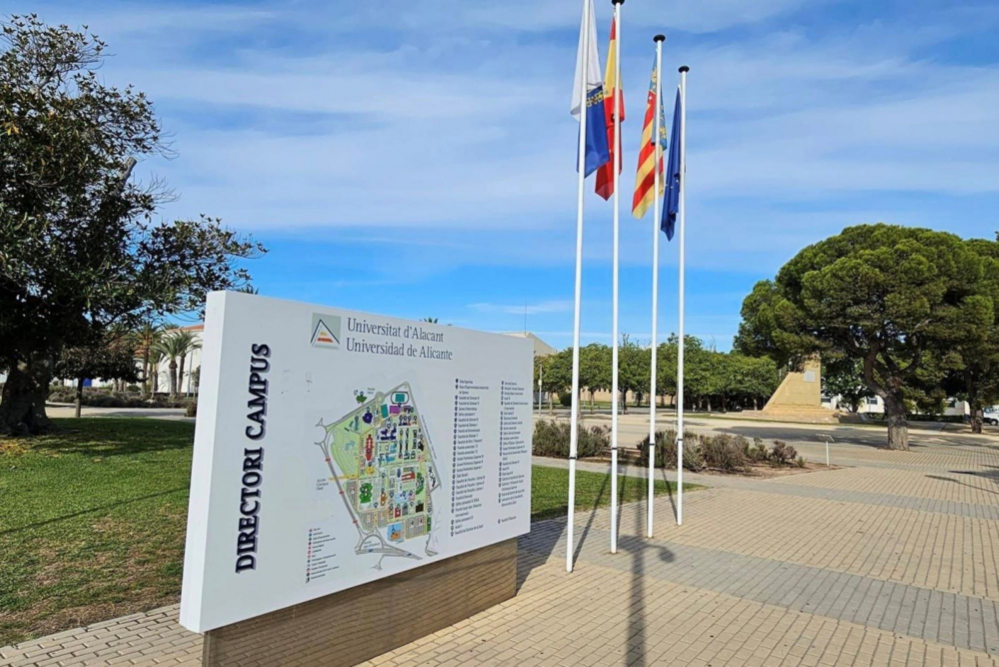On 4 November 2024, the Youth Research Institute held a lecture and Q&A on how low birth rates worldwide threaten the sustainability of societies and what consequences this may have for future generations.
The event was opened by YRI Director Dr Levente Székely, who stressed in his speech that the current demographic crisis is no longer a problem for developed countries only, but is becoming a global challenge. Next, YRI Head of Research Dr. Georgina Kiss-Kozma presented the results of their 2024 family and relationships research that focused on online dating and the attitudes of today's youth towards family formation.
Special guest Dr Paul Morland, one of the UK's leading demographers, outlined the key points as to why population decline is a growing global concern. He emphasised that research and surveys show time and time again that in many cases women give birth to fewer children than they would like to or end up having no children at all, regardless of their desire to become mothers. Dr Morland explained that the main challenge is not shrinkage of populations per se, but the subsequent ageing of societies and the lack of a young workforce that result from it. He also discussed the main factors that influence the fertility rate in various countries around the world and the strategies that could be employed to increase it.
The presentations were followed by a panel discussion with Dr. Paul Morland, Dr. András Pári, Vice President of Research at the Kopp Mária Institute for Population and Families (KINCS) as well as Dr. Georgina Kiss-Kozma. The experts analysed reasons why young people are having fewer children than previous generations and why the time to have children is being pushed back into their thirties and forties. The panel discussed Hungary’s family policy, measures currently in use to encourage childbearing and cultural changes that are driving the shift in young people’s priorities.
The event made it clear that the emerging global demographic crisis is the result of multiple and complex socio-economic and cultural factors, and the speakers emphasised the need for a rethink and the role of government intervention in securing our common future.

